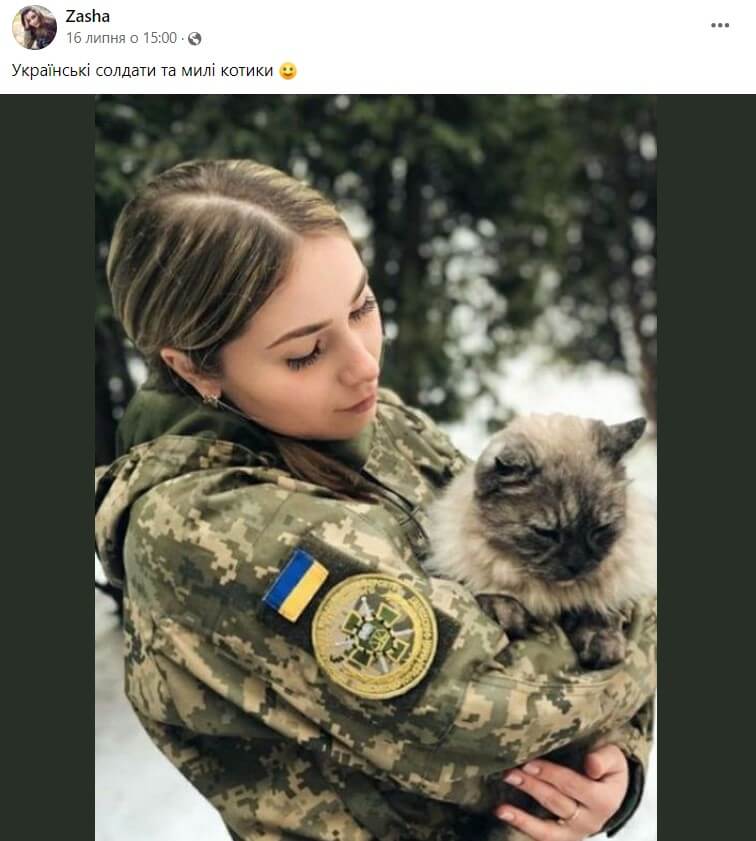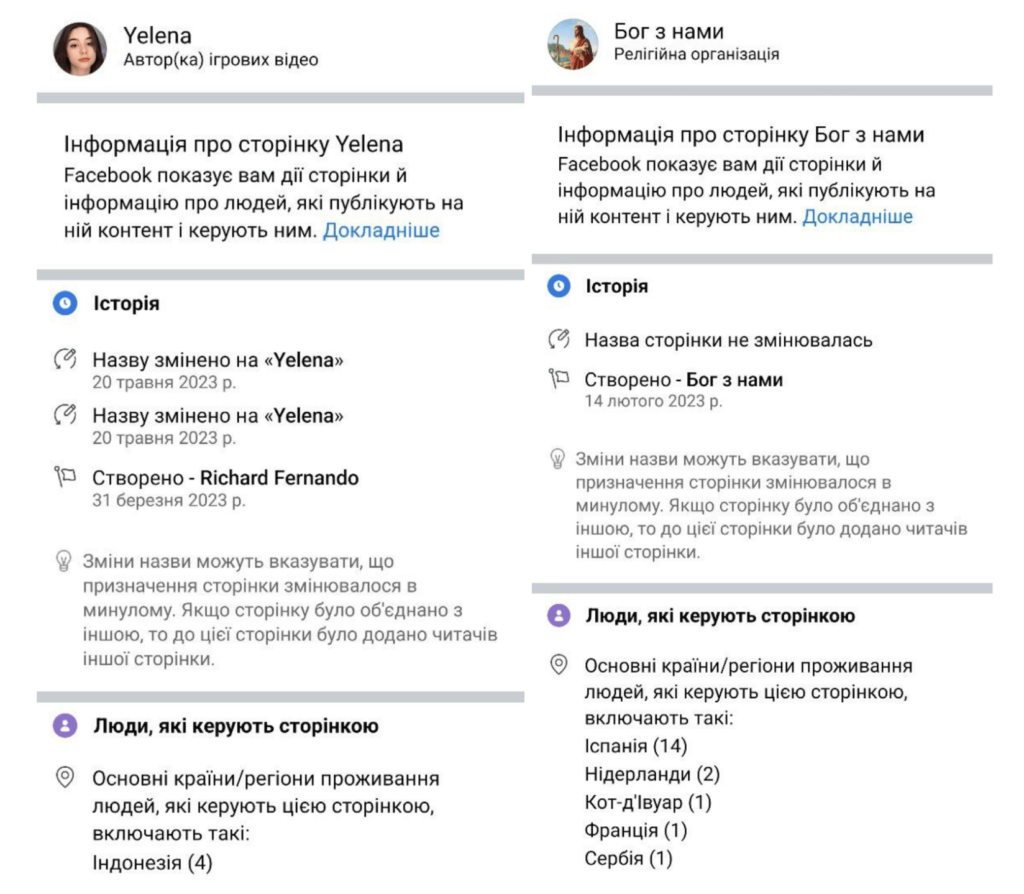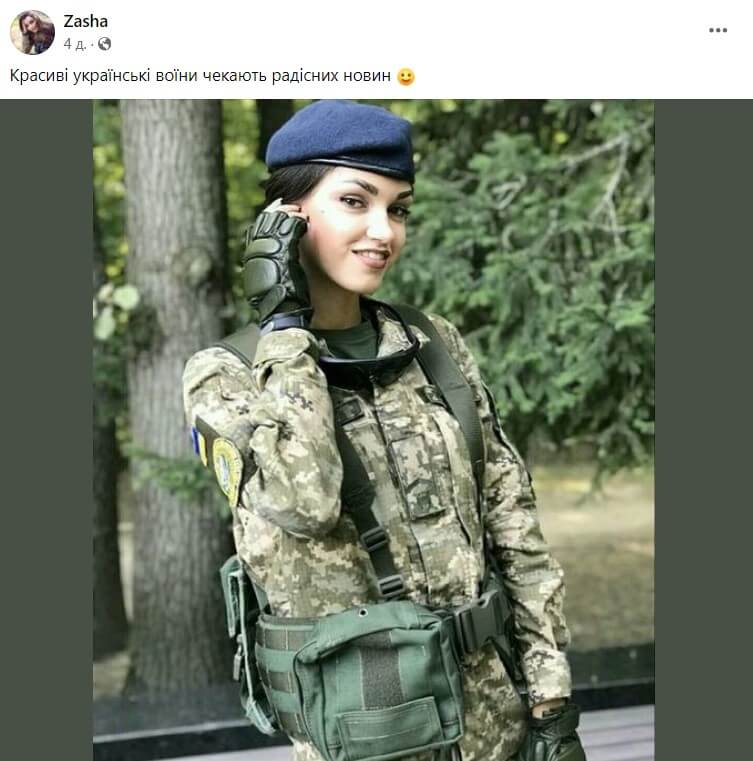“Today this grandmother turns 101, and no one even congratulated her”, “Two twin soldiers are defending us on the front lines, support them with a like”. These kinds of messages are often seen on social media. The attempt to evoke feelings of pity, appealing to patriotism and gratitude towards the Defense Forces — all this makes hundreds, sometimes thousands of users support such content with likes and comments. It seems unimportant that the “military” actually has four fingers or even a Russian armed forces patch.


Screenshots of the post
Who spreads this content?
These kinds of posts are often seen in groups with patriotic names like “Best Ukraine” or “Good Evening, We Are From Ukraine,” and sometimes on personal pages. Initially, their content seems pro-Ukrainian, with the authors posting photos of soldiers with emojis and emphasizing that these are “our” heroes. However, “our” is an abstract concept. According to Facebook, the administrators of these groups are far outside Ukraine, in places like Indonesia, Spain, or Serbia.
To avoid being blocked due to user complaints, such groups often change their names. For example, a page with an audience of over 50,000 subscribers initially named Carlos Antonio is now a girl named Zasha with a military photo as the avatar. The letter Z at the beginning hints at whose interests the account actually serves.
Incorrect usage of masculine and feminine gender in post captions, replacement of certain letters with Latin characters, clickbait headlines, AI-generated photos — these are all consistent attributes of pages potentially managed from Russia.
What is the danger of these pages?
One might think, what threat or harm can come from likes on generated photos? In fact, there are several reasons why this content should not be consumed. The first problem lies in the post captions. Often, likes are asked to be given to “support a soldier who returned from the front, became disabled, and is now unwanted”. Such posts evoke discouragement and pity, suggesting that the government and Ukrainians do not value soldiers. This content can also demoralize military personnel who view these posts.
Despite the fact that some comments under these posts are written by bots, a significant number of them come from real accounts of patriotically inclined Ukrainians who do not intend to offend soldiers but sincerely believe they are supporting them.
Screenshot of the post
This poses the greatest danger because such groups allow Russia to identify categories of people with low media literacy and target them with disinformation messages in the future. In these groups, “patriotic” content is often interspersed with videos where tarologists and fortune-tellers “predict” Ukraine’s defeat or talk about “terrible losses”. The posts contain links to resources created shortly after the full-scale invasion, mimicking news sites. Such “media” usually spread defeatism.
By supporting such posts with likes or comments, the user signals to social media algorithms that they like the content of this group. As a result, their feed is filled not only with “fortune-tellers” but also with clickbait statements, such as “the lights won’t be turned off anymore,” news from Russian show business, and gambling advertisements.
Why are such posts spreading now?
Posts like “congratulate the grandmother on her birthday” have existed for a long time. However, the amount of such content sharply increased in 2022, after Russia’s full-scale invasion. It is unlikely to be a coincidence. In 2023 and 2024, there are even more such groups, indicating their effectiveness in Russia’s information warfare.
Therefore, to avoid becoming an unwitting tool in Russia’s game, it’s better not to like or comment on such posts, report them to social media administration, and only read verified media.
Attention
The author doesn`t work for, consult to, own shares in or receive funding from any company or organization that would benefit from this article, and have no relevant affiliations


